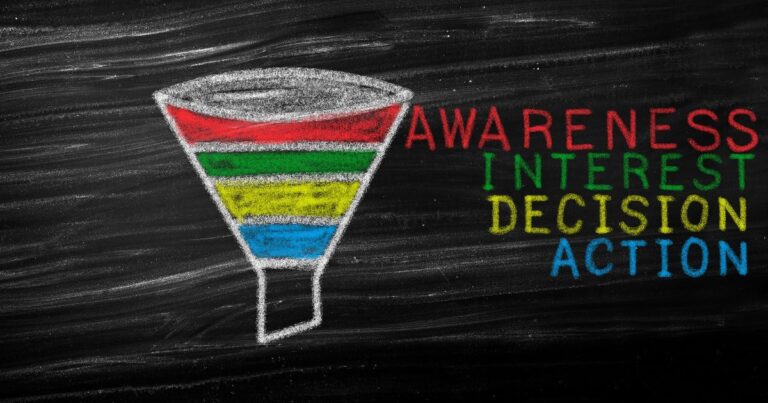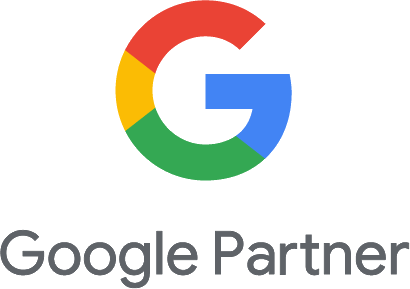Do you know the stages of a potential client’s journey to your law firm?
While each case is different and has a unique set of circumstances, potential clients follow a similar path from learning about your law firm to calling your office or filling out an online contact form.
In this blog, PMP lays out the different steps of the journey your potential clients take through the law firm marketing funnel. We explain how to tailor your marketing messages for different stages of the funnel.
You may think the marketing funnel is only relevant to large firms with multiple offices and huge budgets. However, understanding the different steps a potential client may take before hiring a law firm is just as relevant for smaller businesses.
At PMP, we partner with law firms across the nation to develop effective marketing strategies for every step of the client journey. Are you ready to take your law firm to the next level? If so, contact us today to discuss your customized marketing solution.
The Stages in the Legal Marketing Funnel
The law firm marketing funnel consists of four stages. From top to bottom, these stages include:
- Awareness
- Consideration/Evaluation
- Decision/Conversion
- Advocacy
Each stage represents a different level of engagement with your law firm. As potential clients move down the funnel, they get closer to deciding on which law firm to hire and making the phone call, completing a contact form or starting a live chat.
Potential clients have different needs, questions and concerns at each stage of the funnel. Law firms need to employ unique strategies for each stage of the funnel to address those needs and questions. This approach helps to encourage potential clients to keep moving to the next stage in their decision-making process.
Awareness
At the top of the funnel, potential clients are newly aware of their legal issues and the fact that they might need to hire a lawyer. They may not even know about your firm yet. Some people researching legal brands may not yet have a personal injury or any legal need that your firm may be able to help them with, but they may have legal needs in the future.
Despite suffering an injury, victims may initially think they can manage the situation on their own. Other victims may fully realize the benefits of hiring a lawyer.
Marketing to Potential Clients at the Top of the Funnel
The awareness stage is all about visibility and educating potential clients. This early on, potential clients are not ready to decide, so you do not want to sell them on your services just yet. At this phase, it is better to educate them about legal topics that may be relevant to their situation. There are a few ways you can do this, such as by:
- Writing blog posts to answer common questions people have at the top of the marketing funnel. Detailed, well-written and easily accessible blog posts help position your law firm as trustworthy and knowledgeable.
- Creating a frequently asked questions section on your website.
- Creating short-form videos, especially videos you can post to social media platforms. Law firms that produce memorable and informative social media content may have a leg up on the competition. These firms are more likely to be at the forefront of a potential client’s mind as he or she moves through the decision-making process.
The Challenge of the Awareness Stage
The challenge at this stage is getting your firm in front of potential clients. While there are many critical aspects of on-site content and social media, sticking to a regular posting schedule and maintaining a consistent standard with blog content should serve you well.
Consideration/Evaluation
At this point, potential clients know they have a legal need, so they start evaluating their options. They want to know more about the law firms that may be able to assist them. In essence, they want to qualify your firm, so they can feel confident you are well-equipped to handle their legal needs. They want to learn more about your law firm’s:
- Experience
- Legal knowledge
- Success stories, including case studies, case results and testimonials from past clients
- Unique approach that sets you apart from other firms in the market – What are your firm’s values?
Detailed blogs, e-books and infographics can help set your law firm apart from your competitors. These should be more specific than blogs for the awareness stage of the funnel. For example, instead of blogs about why someone may need a lawyer, write blogs about why someone needs a lawyer for a specific type of accident case or blogs about specific injuries suffered in car crashes.
You can promote blogs, e-books and infographics on social media and through email marketing campaigns and search engine optimization (SEO). For example, you can do paid marketing on social media or simply share engaging content with your followers.
Other avenues for reaching potential clients at the consideration/evaluation stage include podcasts, webinars and Q&A sessions. You can save yourself time creating content by repurposing what you already have. For instance, you can use blog posts to create e-books, infographics and videos.
Your main goal at this stage is to show that you understand a potential client’s needs and how you can fulfill those needs. If you are marketing for cases that do not involve upfront fees, make sure to emphasize this. You may think potential clients know there are no upfront fees for certain types of cases, but they often do not. One of the of the biggest obstacles for clients deciding whether or not to hire a lawyer is often the concern about cost.
Decision/Conversion
At this point, potential clients are ready to hire your firm or set up an initial consultation. These people know they need a lawyer, know about your firm and are ready to decide what to do.
Your guiding principle during this stage is to make the path to a conversion as clear and frictionless as possible. For example, you need clear and compelling calls-to-action in your marketing content. You need to guide potential clients toward making a decision to call your firm or submit a contact form. Web developers and marketers need to work hand in hand to create an intuitive user experience, otherwise potential clients may give up and contact another law firm.
If someone clicks on a pay-per-click advertisement, the landing page that pops up needs to clearly articulate your unique value proposition.
Someone’s interaction with your firm during the decision stage should reinforce what they have already learned about your firm. You need to show them why they were right to be confident in selecting your firm. For example, landing pages often highlight attractive points, such as the free case evaluation and no upfront fee system. Additional positive points to highlight include relevant case results and positive reviews posted by other clients.
Advocacy
After clients convert, the goal is to get them to hire your law firm, giving your firm the opportunity to work to secure a favorable result in their case. If you are successful in securing a positive outcome for this client’s case, you have fulfilled your primary objective. This success offers yet another opportunity for your law firm: turning these clients into advocates.
Encourage clients to leave a review of your firm online, as client reviews are a critical consideration when potential clients are trying to qualify your firm.
You should encourage your clients to come back if they have other legal needs or if a family member or friend needs a lawyer for a similar situation. While people put a lot of stock in online reviews, a recommendation from a friend or family member may be even more powerful.
The law firm marketing funnel is a useful framework for understanding the journey of your potential clients. If you are looking to improve your marketing efforts at any stage of this journey, contact PMP to discuss how we can help you meet your marketing goals.

